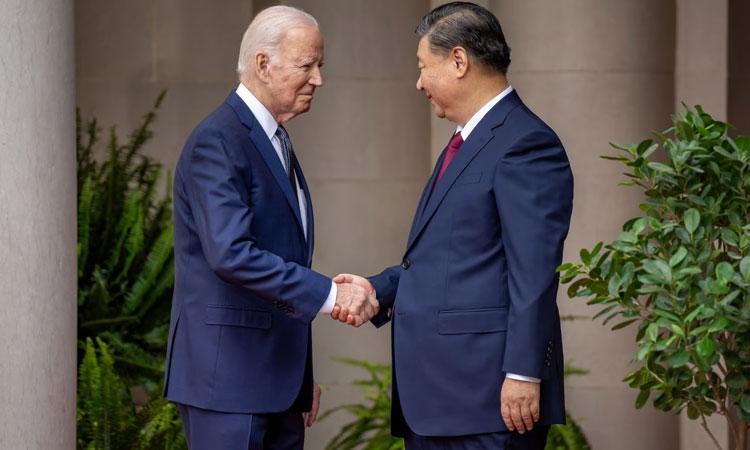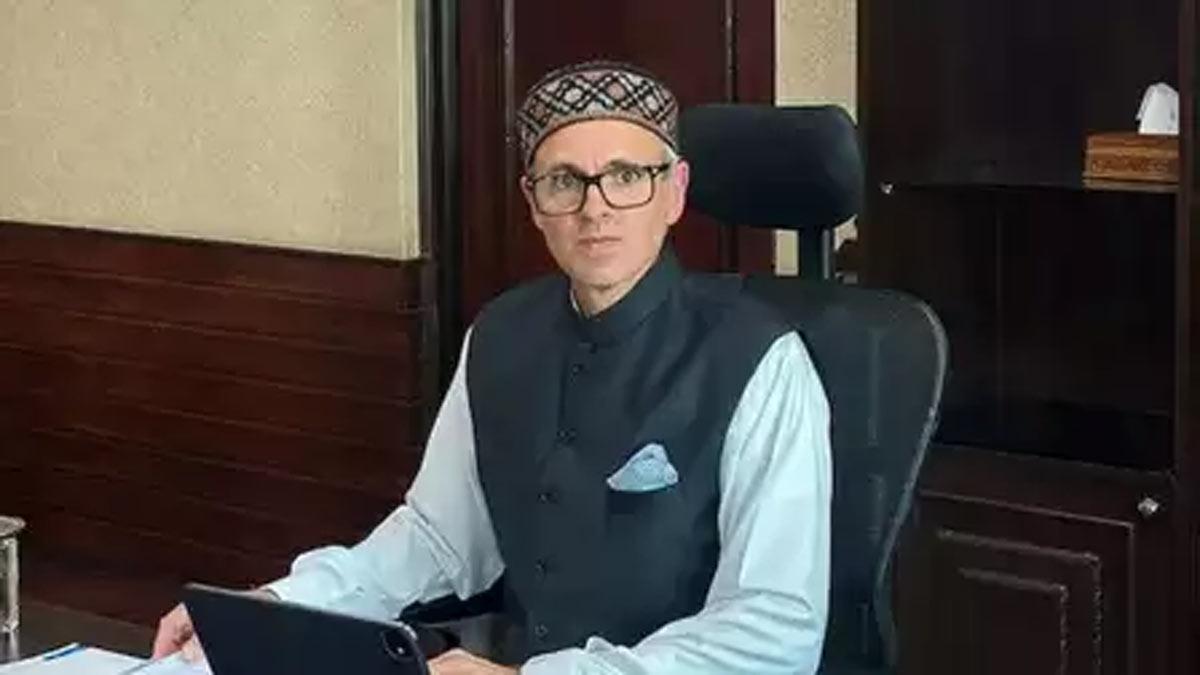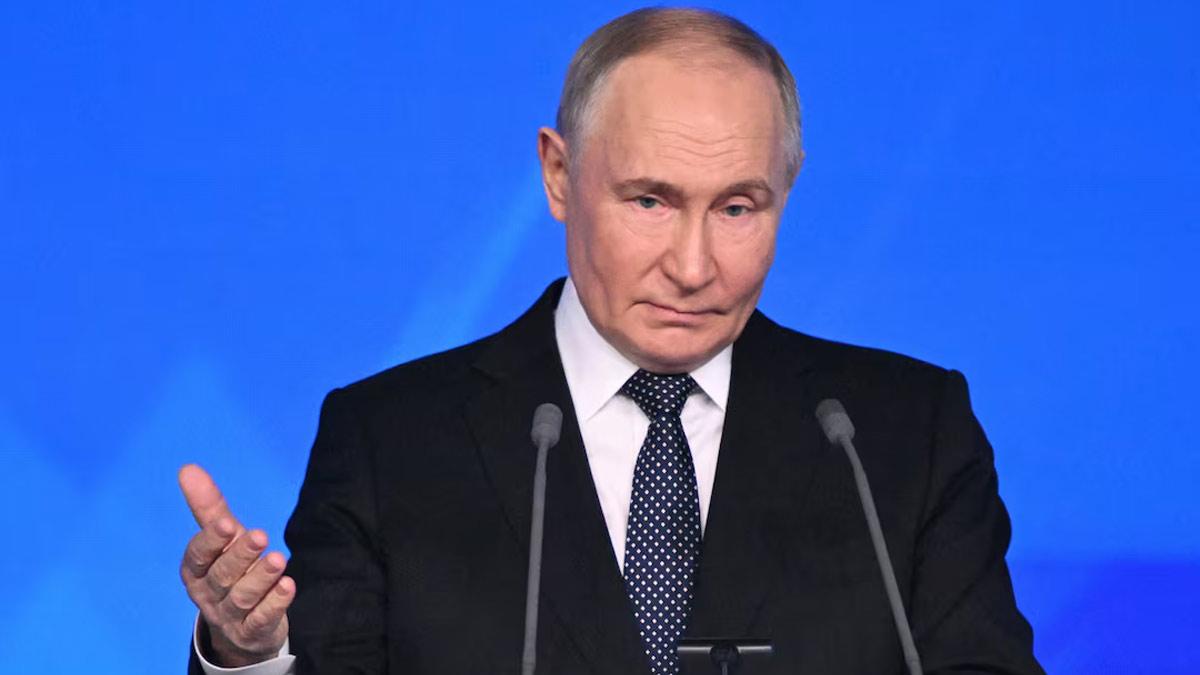The US-China Summit concluded at the majestic Filoli Estate in Woodside, with Presidents Joe Biden and Xi Jinping committing to managing differences and fostering stable relations between their nations. This historic in-person meeting, the first in over a year, took place amidst the scenic beauty of the estate, located 40 km south of San Francisco.
For over four hours, Biden and Xi engaged in discussions across various settings, including an expanded bilateral meeting, a leisurely lunch, and a stroll through the mansion's garden. Seated across a long table with their respective delegations, the leaders emphasized the mutual interest in avoiding confrontation and prioritizing cooperation.
"President Xi Jinping and I tasked our teams to maintain a policy and law enforcement coordination going forward to make sure it works...Secondly, and this is critically important, we're reassuming military-to-military contacts, direct contacts...So we're back to direct, open, clear, direct communications on a direct basis. Vital miscalculations on either side can cause real trouble with a country like China or any other major country. So I think we've made real progress there as well," President Biden said after the meeting.
A senior administration official described the talks as open, frank, and candid, allowing Biden to express his concerns directly to Xi, who reciprocated with his own perspectives. The discussions covered a wide range of topics, including bilateral ties, regional and global issues such as Iran, the Middle East, Ukraine, Taiwan, Indo-Pacific affairs, economic matters, artificial intelligence, drugs, and climate change.
Post-meeting, China committed to taking action against companies involved in illegal drug trade in the US, showcasing a tangible outcome. Additionally, both nations agreed to resume military-to-military level talks, with Defense Secretary Lloyd Austin and his Chinese counterpart leading discussions. Operational-level engagements between the PACIFIC Commander and Chinese counterparts were also set to take place, demonstrating a commitment to enhancing military communication.
The leaders acknowledged the need for engagement on the critical issue of artificial intelligence, highlighting the growing importance of this field in the evolving global landscape. President Xi expressed his desire to stabilize the US-China relationship, while Biden, in turn, conveyed that China must provide a level playing field for US companies.
Xi addressed concerns about the portrayal of the Communist Party of China in the US, emphasizing unfair reporting. He strongly denied rumours of China planning to invade Taiwan, and the leaders delved into an extensive discussion on Taiwan, with Xi labeling it as the most precarious aspect of their relationship. While Biden advocated for maintaining the status quo, Xi expressed the idea that, at some point, efforts should be made towards resolving the Taiwan issue.
The Middle East and Ukraine were also key topics, with Biden urging China to play a constructive role in addressing issues in Iran. The summit took place at the picturesque Filoli Estate, known for hosting high-profile events and film shoots, providing a fitting backdrop for the important diplomatic talks.
In a lighter moment, Biden extended birthday wishes to Xi's wife, showcasing a personal touch amid the formal discussions. The delegations on both sides, each consisting of approximately 10-11 senior officials, demonstrated the significance of the meeting. The administration official clarified that this was not a G2 summit but rather a "strategic calibration," signifying a nuanced approach to the US-China relationship.
Xi's earlier remarks at the APEC Leadership Summit underscored the belief that the world is vast enough for both nations to succeed. He emphasized the need for mutual respect and cooperation, stating that major country competition is not the prevailing trend and cannot solve the challenges facing both nations.
As Xi noted the changes since their last meeting in Bali, Indonesia, he highlighted the global challenges post-COVID, including economic recovery, industrial and supply chain threats, and rising protectionism. The China-US relationship, described as the most important bilateral relationship globally, was framed within the context of accelerating global transformations.
Biden, in his welcome remarks, stressed the importance of managing competition responsibly to prevent conflict. He expressed the need for candid discussions and joint efforts to address global challenges, from climate change to narcotics and artificial intelligence.
Also Read | US not trying to ‘decouple’ from China: Joe Biden ahead of summit talks with Xi Jinping
Also Read | US-China Summit: President Biden to meet Xi Jinping in San Francisco next week


















